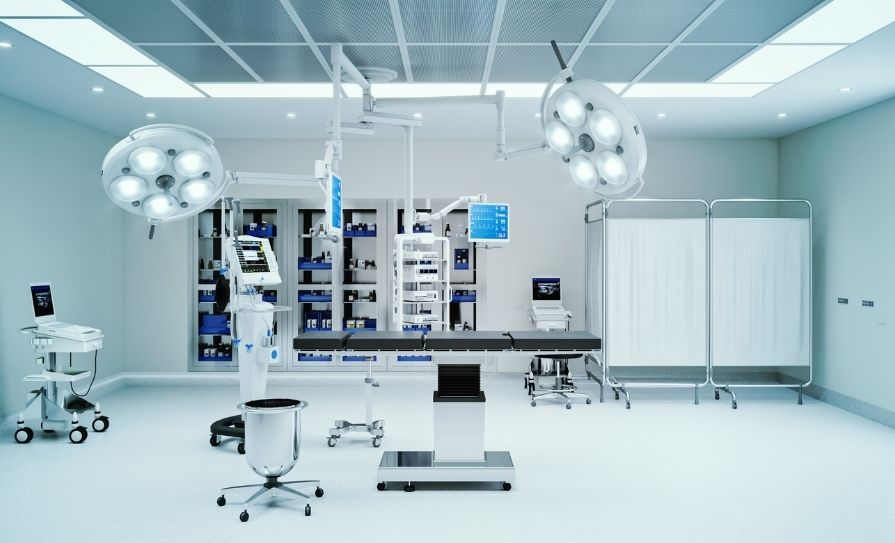The RCPI Diploma in Medicine for the Older Person aims to prepare physicians to provide care to an older population
As a nation, we are getting older — 22 per cent of the total population of Ireland will be aged over 65 years by 2041. This is one of the biggest challenges that medicine needs to respond to.
Dr Joe Browne, Consultant Geriatrician at St James’s Hospital, Dublin, is leading the Diploma in Medicine for the Older Person at the RCPI, which will cover topics such as brain health and psychiatry in the older person, syncope and falls, legal issues, long-term care, and quality improvement. He says that the area of medicine for the older person is one which is currently underserved for physicians and healthcare professionals looking to update their knowledge.
“There is very little [in the way of] older-person training programmes in the country at the moment, and other than going to the UK or going to select different areas, there’s very little from a diploma point of view, or getting a higher degree; that opportunity is limited at the moment.” Developing geriatric principles and understanding how assessment for older people differs compared to traditional assessment of younger adults is something that is going to become increasingly relevant as our population ages.
The doctors we talked to delivering the diploma agree, and were keen to share their thoughts on the innovations and advancements that can help doctors in this area.
Longevity dividend
Dr Rosa McNamara, Consultant in Emergency Medicine at St James’s Hospital, says: “The longevity dividend is something we all talk about, that great celebration in medicine that people live longer and in better health in their homes. But obviously, for us, we need to adapt the way we do things, as the way the health service is set up doesn’t always meet these needs.”
She continues: “We’re in a very difficult time with resources and allocation being very limited, but [doctors] want to do the best for the patients and go through the most efficient, quickest way for their patients so they don’t miss out on what they’re entitled to.”
Talk to any geriatrician and you will hear that there have been rapid advancements in geriatric medicine over the past two decades, in terms of both assessment and treatment options. One of the challenges is to ensure that these advancements are communicated to those working with the older person who are not specialists in this field.
Dr Paul McElwaine, Consultant Geriatrician at Tallaght University Hospital, Dublin, says: “Stroke, dementia — all these approaches have come on an awful lot. Anybody who hasn’t necessarily come up to speed with those areas will be surprised at how much is going on, how many new treatment options there are, certainly from the clinical assessment side, in a number of conditions. There’s changes in every area.”
Medico-legal
In practical terms, nursing home care and medico-legal concerns are something increasing numbers of doctors will have to deal with. GP Dr Maitiú Ó Tuathail says it can be a daunting area for those who haven’t dealt with this area before, but it is one that is vital to understand.
“The diploma is very applicable to people who work in the community and in the hospital. We’ll be covering the kind of medical and legal side of care for the older person, aspects like wills and power of attorney. We’ll go into the whole application process for long-term care and an insight into that. It’s something that unless you’re directly involved in care of medicine for the older person, potentially you might not be familiar with engaging in.”
Technology
Another area which has evolved rapidly is technology and the care of the older person, something that will undoubtedly play an even larger role in future assessment and treatment options.
Dr Isweri Pillay, Consultant in Geriatric Medicine and General Internal Medicine at South Tipperary General Hospital says she thinks this will be a crucial tool going forward. “I think the assistive technology bit is new… Those things are now available throughout the country, and what they have done is used technology to bridge the gap with people’s care needs at home.” As a practical example, she says “in communication, you might not be able to use a mobile phone but now they have put pictures of your loved ones on the phone; you can press the picture and get through to your loved ones.”
One of the Memory Technology Libraries is situated in the Education Centre of South Tipperary General Hospital and is a great resource for staff working with, or caring for, older people. Dr Isweri Pillay notes that the diploma “really encapsulates what it means to do modern day geriatric medicine”.
Dr McNamara concludes: “As we try to move towards wraparound care for older people that is more focused on their individual needs than community-based needs or systems needs, everybody needs to upskill and understand how it could work and should work.”
As the Mercer’s Institute for Successful Ageing (MISA) says: “One of the great success stories of modern times is the increasing number of people living into old age. This triumph is also one of our greatest challenges.” Dr Browne agrees that care of the older person now, and as our population ages, is something that needs an interdisciplinary and multi-professional approach, and one informed by the most recent advancements in the area.
“A lot of the stuff that can be done is preventative, and often that’s where GPs, [physicians and other healthcare professionals] can come in and prevent things progressing. In the hospital, we only see about 5-to-10 per cent of older adults in the country; 90 per cent are healthy out there and it’s how we maintain this healthy status and prevent diseases or pathologies as they arise and deal with these.”













Leave a Reply
You must be logged in to post a comment.